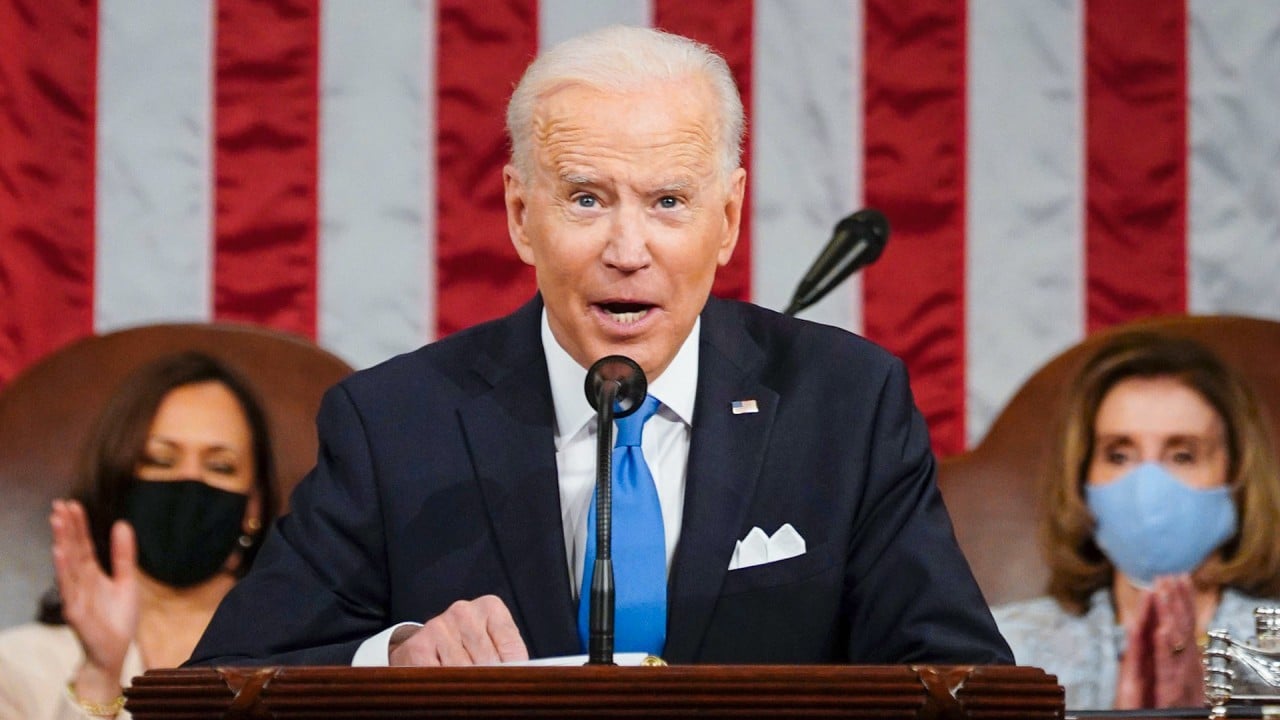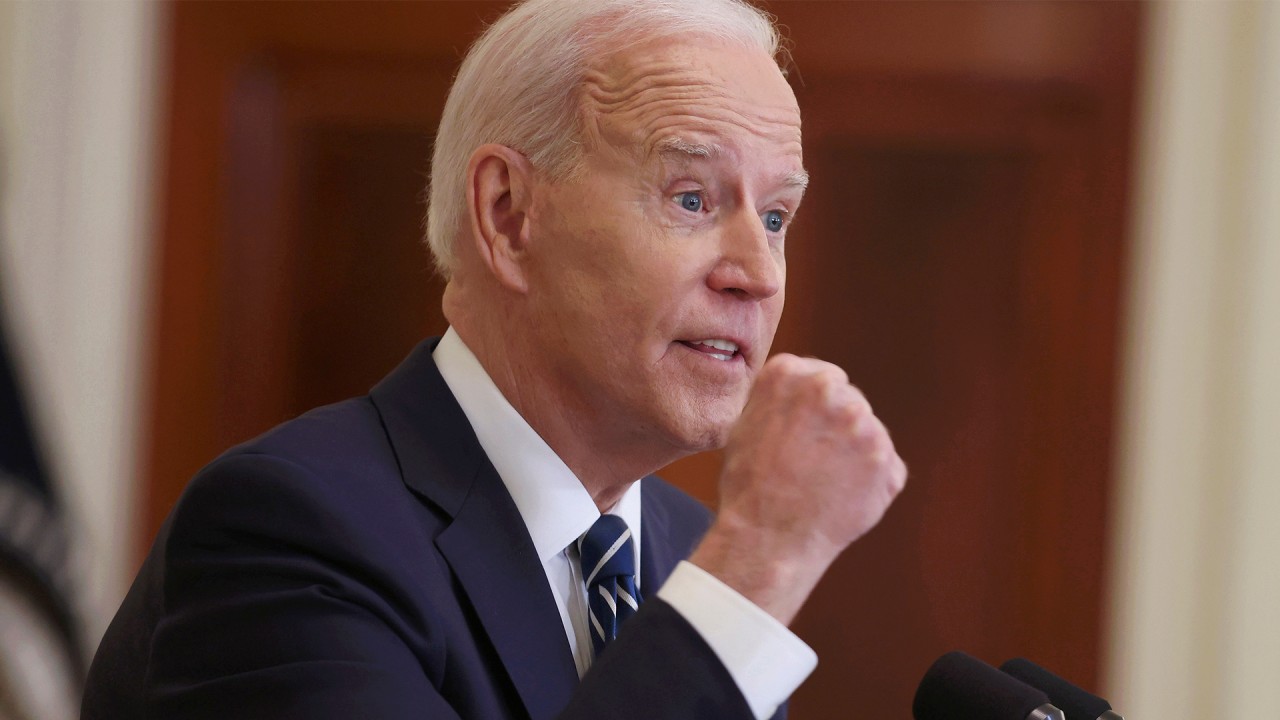
Why Joe Biden’s celebration of America’s successful return is premature
- The US president has underestimated the complexities of outcompeting China and overestimated allies’ capacity to recommit to US leadership
- Moreover, Congress remains deadlocked, economic recovery is uncertain and Donald Trump could seek the presidency again in 2024
China loomed large in his speech. Not only did Biden return to his oft-repeated (and misleading) line about travelling 17,000 miles with Chinese President Xi Jinping, but he also expanded on their discussions since he took office in January.
“I told him, ‘We welcome the competition. We’re not looking for conflict’,” Biden said. “I told him what I’ve said to many world leaders: that America will not back away from our commitments – our commitment to human rights and fundamental freedoms and to our alliances.”
This is not an entirely novel approach; even 10 years ago, when Biden was vice-president, then-president Barack Obama said the US needed to make domestic changes to meet the challenges of China’s economic rise. These recommendations went largely unheeded.
While he took part in the first congressional delegation to visit China after relations were normalised in 1979, in the late 1980s and 1990s he emerged as a steady hawk on China policy.
On the surface, the current situation seems a rare occurrence of man meeting moment. Biden supports getting “tough” on China – as does Congress – and the pandemic roused the entire country to the imperatives of meeting the challenges posed by China. But I do not think this is going to be enough.

03:53
China ‘closing in fast’, says US President Joe Biden in first address to Congress
The US has ignored the China challenge and failed to learn about its chief competitor for so long that it may be too late to start. China’s head start may be insurmountable.
Before the pandemic, there were nearly 375,000 Chinese students studying in the US. Some stayed, but many went back to China armed not only with their Western education, but also knowledge of the American political system, culture and history.
The number of American students with comparable knowledge of China is minuscule in comparison and interest in studying China is waning after peaking around the 2008 Beijing Olympics.
Moreover, much as Biden may preach that the US is “back” and has overcome the challenges of the past four years, the perception of American decline abroad may be harder to shake.
The pandemic has made the past year a difficult one for all nations, but the multitude of US domestic crises has prompted adversaries and allies alike to wonder if we are witnessing the end of American prestige.
The world is watching America’s identity crisis
Biden acknowledged the historic nature of America’s crises, saying that when he took office, the country faced: “The worst pandemic in a century. The worst economic crisis since the Great Depression. The worst attack on our democracy since the Civil War.”
Much as he tried to demonstrate the contrary in his speech, Biden has acknowledged that re-establishing confidence in the US – for allies and adversaries alike – may prove difficult. When he makes the case to leaders around the world that “America is back”, he said, the common response is, “but for how long?”
While Biden wants to take a victory lap for his administration’s pandemic successes in the first 100 days of office, world confidence in the stability of US leadership remains on shaky ground.

02:50
Biden says China won't become ‘the most powerful country’ on his watch
All these factors have the potential to disrupt Biden’s ambitious domestic and foreign policy strategy for confronting China, not to mention any unexpected crisis that may emerge.
I fear Biden is too quick to celebrate his successes, has underestimated the complexities of outcompeting China, and taken for granted the capacity of America’s allies to look past the instability of the past four years and recommit their faith to American leadership.
These would be gargantuan challenges for even the most capable, generation-defining president, and I do not think anyone realistically believes Biden will be either of these things.
Chi Wang, a former head of the Chinese section of the US Library of Congress, is president of the US-China Policy Foundation

